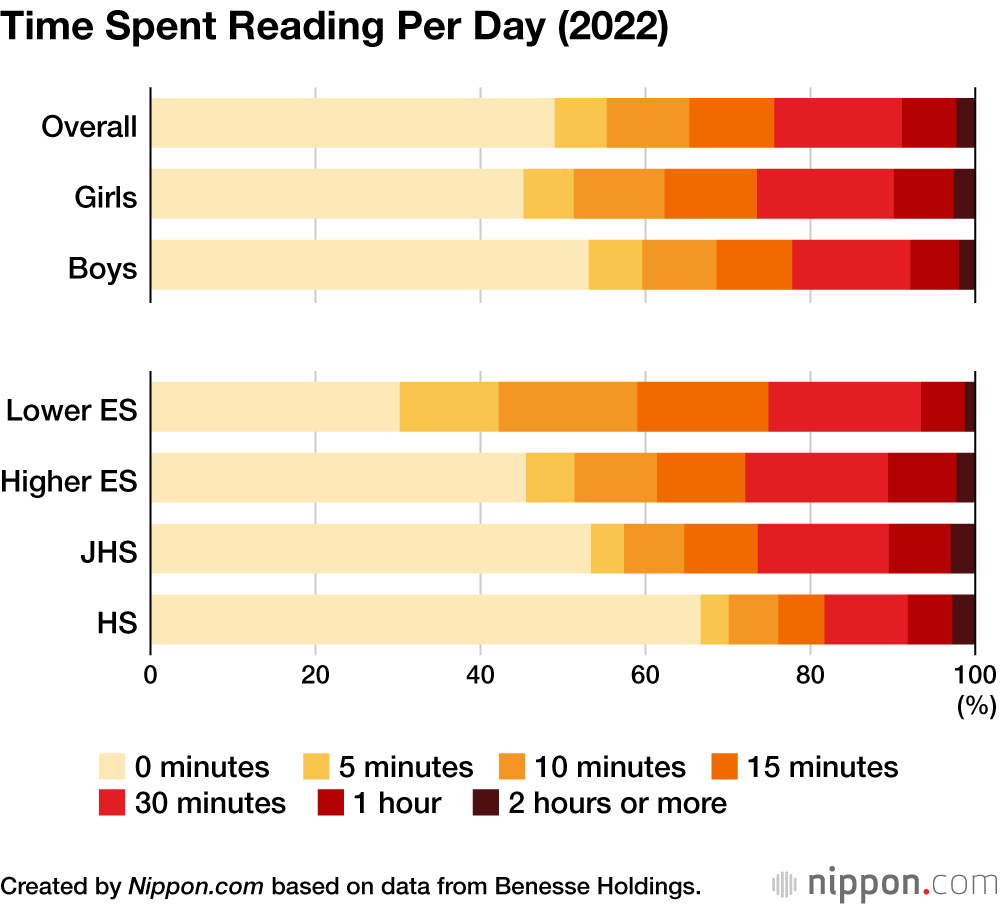
Survey Finds Half of Children in Japan Do No Reading on Weekdays
Education Family Lifestyle- English
- 日本語
- 简体字
- 繁體字
- Français
- Español
- العربية
- Русский
A survey in Japan looking into children’s lifestyles and study habits revealed that approximately half of the children who responded did “zero minutes” of reading on weekdays.
Targeting 20,000 pairs of parents and children, the survey has been jointly conducted eight times between 2015 and 2022 by Benesse Educational Research and Development Institute and the Institute of Social Science at the University of Tokyo, with the same parent and child pairs tracked continuously throughout that period. According to the 2022 data, 49.0% of children answered that they do no reading on weekdays. Boys had a higher rate of not doing any reading and by school grade, as the grade rose, so did the rate of those who read for “zero minutes.”
In 2015, the overall average reading time per day was 18.2 minutes. By 2022, this had decreased to 15.2 minutes, a drop of 3.0 minutes. While the shift away from reading is much debated and lamented, what specific benefits does the activity have? The children’s own responses showed that those who did spend a lot of time reading tended to rate themselves as being good at comprehension, thinking, and expressiveness.
These results may make parents want their own children to have a love for reading. An analysis of the survey showed that children who spent more time reading were those from families with a large number of books at home or whose parents conveyed to them the importance of reading.
Moreover, having tracked the same children over a seven-year period, the results revealed that those who had been read to a lot before entering elementary school spent more time reading and did so continuously through to junior high school. This was higher than those who had not been read to when younger. It was also found that children who developed reading habits early in life tended to keep reading for longer periods of time as they got older. The conclusions that can be taken from the survey are that the home environment and parental encouragement are key to children spending more time on reading.
(Translated from Japanese. Banner photo © Pixta.)




